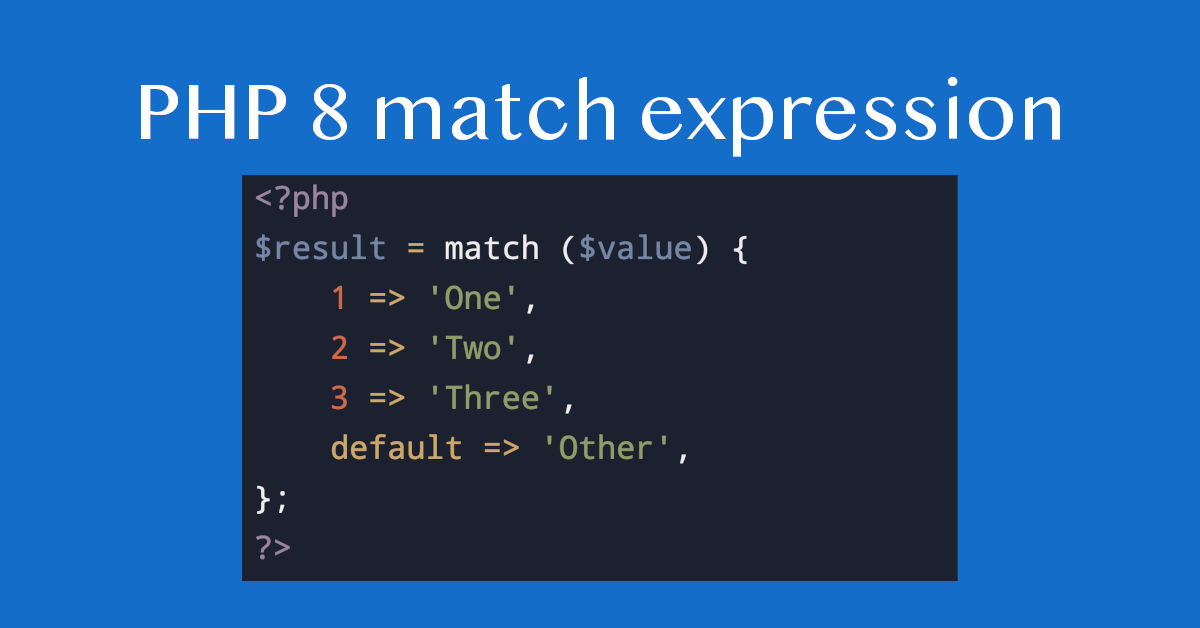In PHP 8, the match expression was introduced as an improvement over the traditional switch statement. While both are used for conditional branching, they have differences in syntax, behavior, and performance. Here’s a detailed comparison:
1. Syntax and Features
Match Expression
- Cleaner Syntax: Match is more concise and avoids boilerplate.
$result = match ($value) { 1 = 'One', 2 = 'Two', 3 = 'Three', default = 'Other', };
- Strict Comparison: Match uses strict comparison (
===), ensuring type safety. - Returns a Value: Match expressions always return a value and can be assigned directly to a variable.
- No Fallthrough: Each case in match is isolated, eliminating the risk of unintended fallthrough.
Switch Statement
- Verbose Syntax: Requires
caseandbreakkeywords, making it more verbose. switch ($value) { case 1: $result = 'One'; break; case 2: $result = 'Two'; break; case 3: $result = 'Three'; break; default: $result = 'Other'; }
- Loose Comparison: Switch uses loose comparison (
==), which can lead to unexpected matches due to type coercion. - Fallthrough Allowed: Without a
break, execution continues to the next case, which can lead to bugs. - Cannot Directly Return a Value: Requires additional variables or logic for returning results.
2. Performance
Execution Time
- The match expression is slightly faster in scenarios with multiple branches because it directly resolves the match without fallthrough checks.
- The switch statement may take slightly more time due to its requirement to evaluate cases sequentially and check for fallthrough.
However, the difference in performance is negligible for most real-world use cases. Any performance difference is more about the complexity of the logic than the intrinsic speed of the constructs.
Optimization
- Both match and switch are optimized by PHP’s engine for common branching patterns.
- If performance is critical, choosing between match and switch won’t likely have a measurable impact; focus instead on simplifying logic and reducing comparisons.
3. Use Cases and Readability
Use Cases
- Use match when:
- You want strict type comparisons.
- You prefer a concise, readable syntax.
- You need to return a value directly.
- Use switch when:
- You need loose type comparisons.
- You have multiple cases that intentionally fall through.
- You are working on legacy code or need backward compatibility.
Readability
Match expressions are more modern and reduce the chance of errors, like missing a break. For newer PHP versions, they improve code clarity and maintainability.
Summary of Comparison
| Feature | Match Expression | Switch Statement |
| Syntax | Concise and clean | Verbose, with break |
| Comparison Type | Strict (===) | Loose (==) |
| Fallthrough | Not allowed | Allowed |
| Return Value | Always returns a value | Does not directly return |
| Performance | Slightly faster | Slightly slower |
| Use Case | Modern, clean logic | Legacy or fallthrough |
Which One is Faster?
In most scenarios, the difference in speed is minimal. The choice should depend on readability, maintainability, and whether you need strict or loose comparisons. For modern PHP (8+), match expressions are generally the preferred option due to their cleaner syntax and stricter behavior.

